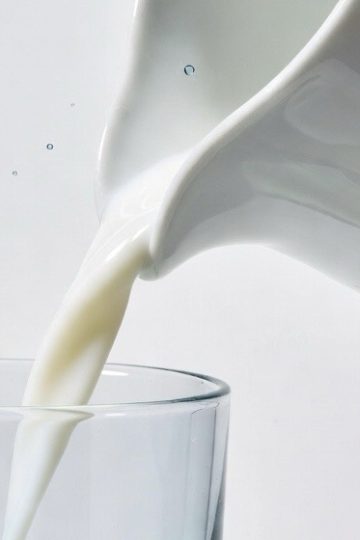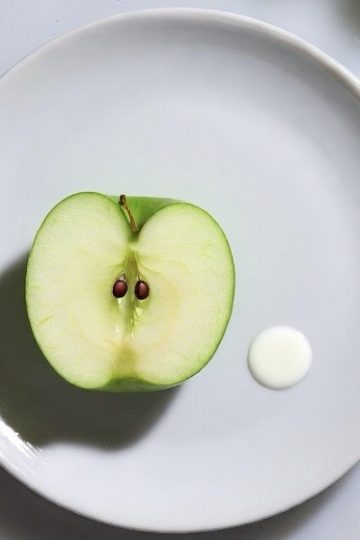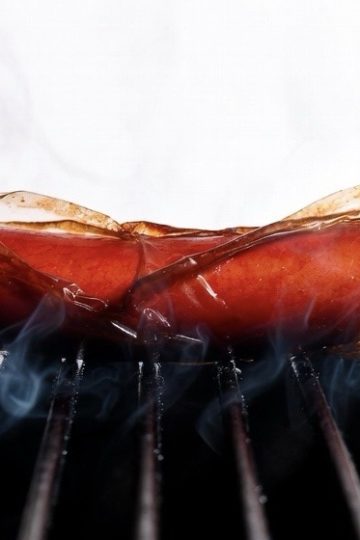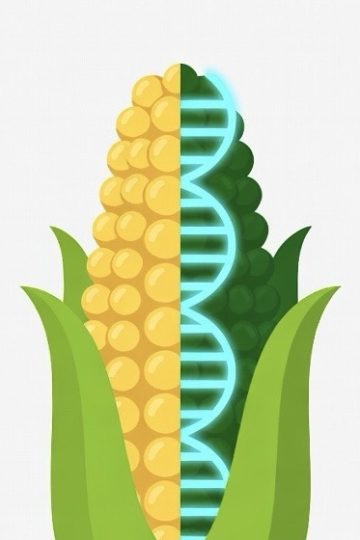A 2025 study by France’s food safety agency ANSES found that many beverages in glass bottles contain far more microplastics than those in plastic bottles or cans—often 5 to 50 times higher. The main source is the plastic-based paint on metal caps used for glass bottles, which sheds tiny particles due to scratches from friction […]
Tag: food safety
Does Using Ice Cubes Really Clean a Hot Grill Safely?
Yes, using ice to clean a hot grill can work surprisingly well when done correctly. When ice cubes hit a hot grill grate, they instantly turn to steam, helping loosen stuck-on grease and food debris through thermal shock. This makes scraping easier and reduces the need for harsh chemicals. It works best on sturdy grates […]
Watch 2026’s Key Food Class Actions: PFAS, Metals, Plastics Exposed
In 2026, the food industry faces transformative class action lawsuits highlighting hidden contaminants and deceptive practices, serving as a critical update for health advocates. Leading cases include San Francisco’s groundbreaking suit against major corporations for designing addictive ultra-processed foods linked to obesity and chronic diseases; microplastics contamination claims targeting plastic storage like Ziploc; ongoing multidistrict […]
Phthalates in Food: Avoid Hormone Disruptors Now
Phthalates, synthetic plasticizers used to soften materials like conveyor belts and food packaging, often migrate into fatty foods such as dairy products, oils, cheese, and processed meats, acting as endocrine disruptors that interfere with hormones like estrogen and testosterone. This chronic, low-level exposure is linked to potential risks including reproductive issues, fertility challenges, metabolic disruptions […]
2026 Certified Purity: Toxin-Free Dairy Secrets
In 2026, certified purity food is transforming grocery shopping by advancing beyond organic certification with rigorous third-party testing for hidden contaminants like PFAS in food (persistent forever chemicals), phthalates in dairy (hormone-disrupting plasticizers), and heavy metals in produce (soil-accumulated toxins such as lead and arsenic). Certifications from organizations like NSF and Clean Label Project, alongside […]
American Cereals Banned Abroad: BHT Health Risks Exposed
Popular American cereals like Frosted Flakes and Rice Krispies are often unavailable in Japan and the EU due to stricter regulations on preservatives such as BHT, a synthetic antioxidant commonly added in the U.S. to prevent spoilage and maintain crispness. While the FDA considers BHT safe in small amounts, Japan’s positive-list system and the EU’s […]
Is Airplane Coffee and Ice Made With Clean Water?
Airplane coffee, tea, and tap water usually come from onboard potable water tanks filled by airport water trucks or hoses, not directly from bottles. While the water meets basic safety rules, tank cleanliness and handling can vary by airline and aircraft, and tanks may not be cleaned often. Coffee and tea water is heated but […]
Dangers of Grilling Hot Dogs in Plastic: Health Risks Exposed
Grilling hot dogs in their plastic packaging might seem like a quick shortcut for juicy results, but it seriously compromises safety by releasing toxic chemicals and microplastics into the food when exposed to high heat. Common wrappers, typically made from polyethylene, degrade under grill temperatures, leaching endocrine-disrupting substances like BPA, phthalates, and persistent PFAS that […]
Why Can’t You Put Metal in a Microwave?
Microwaves heat food using electromagnetic waves at about 2.45 GHz that make water molecules vibrate, creating friction and warmth. Metal, being a good conductor, reflects these waves instead of absorbing them, causing the energy to bounce around inside the oven. This reflection builds up strong electric fields, especially at sharp edges or points on items […]
Are Bioengineered Ingredients Bad? Real Dangers Exposed
Many consumers grow wary upon spotting “bioengineered ingredients” on food labels, viewing them as synonymous with GMO foods or genetically modified foods that have fueled decades of debate. These crops, engineered for traits like pest resistance and higher yields, appear in most processed products, yet widespread concerns persist over potential health risks—including glyphosate residues classified […]










